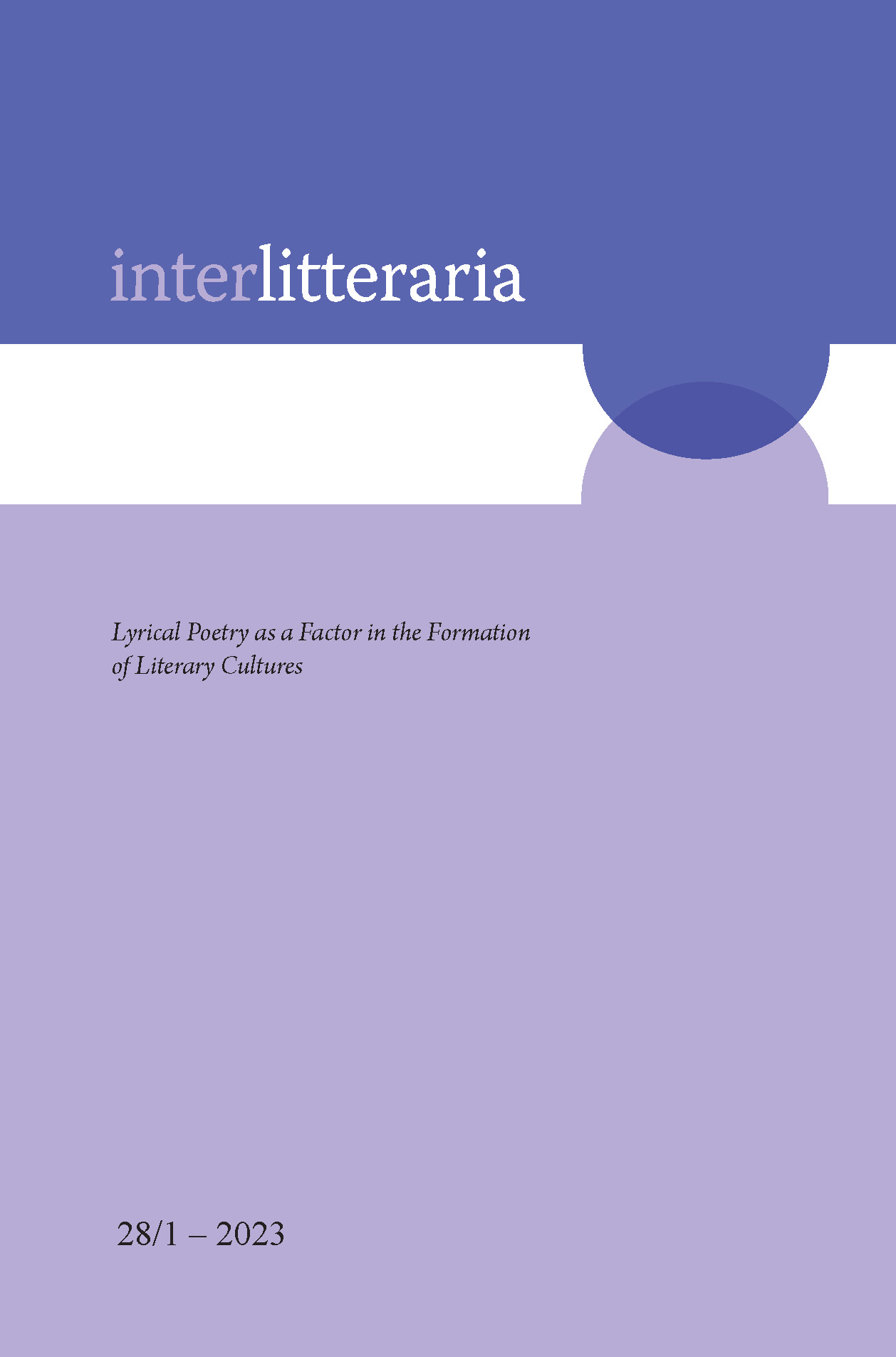“In a Miracle Wellspring” of Goethe’s Poetry: Comments on the Role of Translated Poetry in a Small Literature
DOI:
https://doi.org/10.12697/IL.2023.28.1.11Keywords:
Goethe’s poetry, translated poetry, literary receptionAbstract
In 1944, on the cusp of one occupying power replacing another in Estonia, the beloved Estonian poet Heiti Talvik translated Goethe’s poetry and was filled with admiration: “What a youthful abundance of life in every detail! Yes, to delve into Goethe’s work is to rinse your eyes in a miracle wellspring capable of renewing your fading vision.” By then, the Estonian language and Estonian poetry had already been drawing from this miracle wellspring for more than a century. In this presentation, I will be discussing the significance of Goethe’s poetry in Estonian literature and comparing it to that of small and large literatures of neighbouring countries. Based on research, I conducted with my co-authors Vahur Aabrams and Susanna Rennik for our recently published book Goethe’s Poetry in Estonian (University of Tartu Press, 2021), I will show the dynamics of the reception and translation of Goethe’s poetry in Estonia and in the wider Baltic cultural space, and I will explore the local socio-cultural and more general aesthetic and ideological factors that influenced this reception.
Downloads
Downloads
Published
Issue
Section
License
Copyright (c) 2023 Liina Lukas

This work is licensed under a Creative Commons Attribution-NonCommercial-NoDerivatives 4.0 International License.
The contents of Interlitteraria are published under CC BY-NC-ND licence.


